
More Helpful Content
Third-party logistics (3PL) is when a manufacturer retains control of its supply chain but does not outsource transportation and logistics to a 3PL provider. A fourth-party logistics provider (4PL) is a corporation that provides logistical services to manufacturers, including supply chain organization and management. Despite their similarities, 3PL vs 4PL logistics differ in numerous ways. Once you can distinguish the 3PL vs 4PL logistics, you will be able to determine which would be better for your company’s supply chain management.
Since the 1970s, the phrase “third-party logistics provider”, or 3PL, has been in use. It simply implies that there is a third party that is engaged in a company’s logistical activities along with the shipper or receiver and the carrier.
👉 Read More: 3PL In Supply Chain: Definition and Benefits
👉 Read More: Inbound and Outbound Logistics: Definition, Process and Differences
A 3PL does not acquire ownership of the goods being conveyed, instead, it will provide several logistical services to product firms that need to ship, store, and transport items, like order fulfillment, freight transportation, and storage. This third party acts as a middleman or manager between the other two parties.
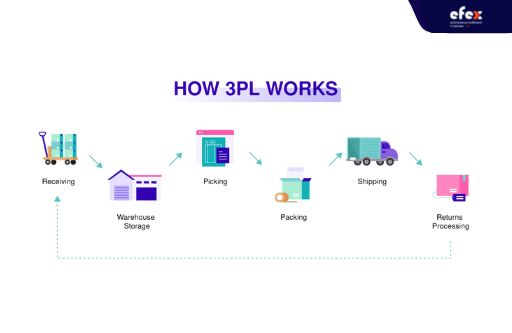
The majority of 3PLs run or operate their own facilities where the seller’s merchandise is stored and fulfilled. Most of them provide a comprehensive set of integrated supply chain services, including transportation, warehousing, inventory control, transportation of goods, cross-docking, and packaging.
You should be aware of the numerous advantages of 3PL providers. The reason is that regardless of the size of your organization if shipping is a significant priority for you, it is worth selecting a 3PL supplier. Here are the advantages that 3PL can bring to your business.
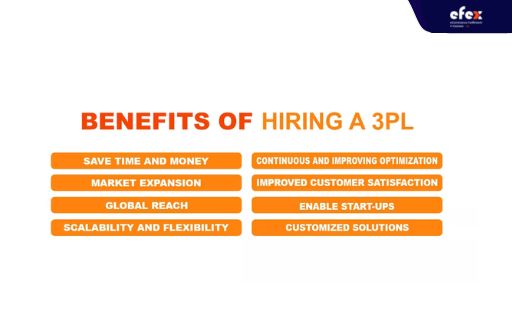
While the 3PL approach has been effective for decades, there are a few points to keep in mind. The lack of direct monitoring and control is maybe the most significant drawback. Because a 3PL is a provider of outsourced services, some actions will take place without your direct supervision. Maintaining quality control and providing excellent customer service takes extra effort. If a 3PL fails to meet a client’s expectations, the consumer will hold your firm accountable, not the 3PL. Another concern is the level of reliance that a 3PL might engender. It might be tough to switch suppliers or bring activities in-house when price or service levels no longer match expectations when you outsource a substantial portion of your organization.


Fourth-party logistics is a business approach in which manufacturers contract with a third party to organize and manage their supply chain. 4PL enables enterprises to completely outsource their logistical operations to external agencies for better management, giving them a higher level of effective supply chain management.
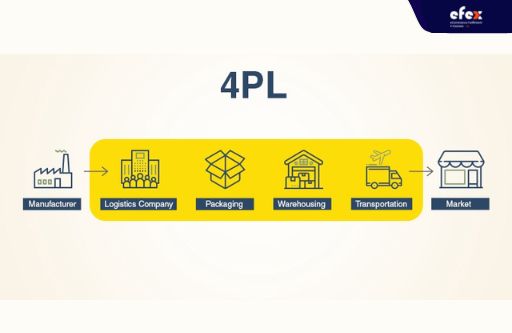
For instance, a product manufacturer may outsource logistics, warehousing, packaging, and its items delivery to a 4PL business. After that, a 4PL company will take over responsibility for all of these operations, allowing the manufacturer or merchant to focus on other aspects of their business.
Working with a 4PL provider may provide your firm with the benefits outlined below. So, let’s check what these benefits are!
One of the obvious downsides of employing a 4PL for your company is that you have little control over the logistics and fulfillment of your items. However, this can be advantageous for a corporation if this is not your area of expertise. Besides, this may also not be a cost-effective alternative for smaller businesses and startups, since their services would obviously be more expensive.
Here are a few reasons why you should choose 4PL for your business.

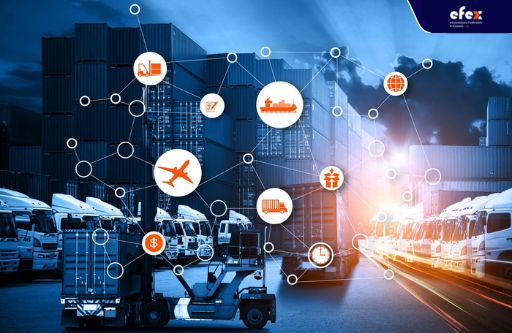
The differences between both a 3PL and a 4PL may appear little, but for a business looking for the proper match of services and support for their expanding organization, the difference might be significant. Generally, the primary difference between both a 3PL and a 4PL provider is that the latter oversees the whole supply chain, whilst the former focuses on logistics. Each of them provides different benefits depending on your case, so understanding what you get from each provider will let you focus on what is important for your company. Below are the main differences between a 3PL and a 4PL.
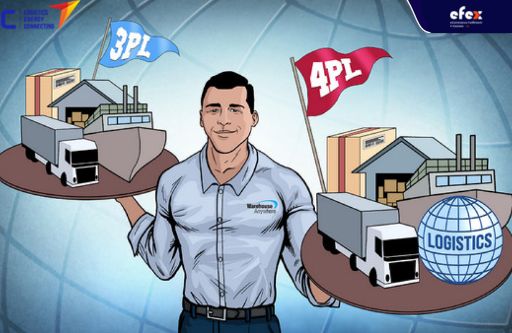
A 3PL provider is responsible for the day-to-day operations of your supply chain logistics, whereas a 4PL is responsible for optimizing the whole supply chain. As a result, a 4PL takes over the whole operation, giving you more time to build and expand your firm. A 4PL is also the single point of contact in your supply chain, whereas a 3PL simply handles particular components of the supply chain.
Typically, your interactions with 3PL providers are transactional. Lane expenditures, rather than strategic reasons, typically drive the link. A 4PL relationship, on the other hand, will be part of a long strategic plan. A 4PL supplier will very certainly help you organize, lead, develop, and coordinate your supply chain.

3PL providers frequently hold many or all of the assets required to manage your supply chains, such as vehicles, distribution facilities, and warehouses. 4PL, on the other side, is frequently non-asset-based, which implies that they have IT systems and intellectual assets but mostly offer logistical knowledge. They also concentrate on locating the most cost-effective suppliers and vendors for your company.
Most 3PLs have a large number of industry partners and links to resources, like shared warehouses, which may assist lower transportation costs and increasing efficiency. In contrast, a 4PL is concerned with lowering the overall operational costs of your supply chain while boosting performance. A 4PL supplier may help you save money by combining services like lean manufacturing, procurement practice optimization, and reverse logistics.
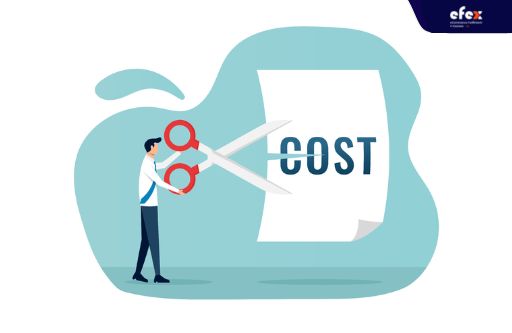
Choosing a 3PL or a 4PL can be a difficult decision that is dependent on the complexity of your supply chain and the strategic goals of your business. If your company is struggling with an increasingly complex supply chain while also attempting to meet consumer expectations for a speedier response, an innovative 3PL or 4PL would be the appropriate solution for you.
A 3PL supplier will handle your everyday logistics but will leave management to you. If you operate a small and medium-sized business, 3PL services are a better option for you. They will support you in handling your distribution and storage so that you can spend your time focusing on sales and marketing as your company grows.
On the other hand, if your medium to large-sized firm requires a broader range of services, a 4PL supplier will be more suitable. A 4PL may assume complete control of your logistics operations, providing more thorough administration and monitoring of various logistics suppliers.
👉 Read More: 3PL Cost: All Fees And Why You Need To Pay
Both 3PL and 4PL services are essential for customer service and play an important part in the customer experience. So, to assist grow your company's brand and reputation, you must know clearly what is the differences between 3PL vs 4PL so that you can choose and utilize trustworthy, dependable logistics providers that will provide excellent service to clients. Hope you have a good time with EFEX - eCommerce Fulfillment & Express.


